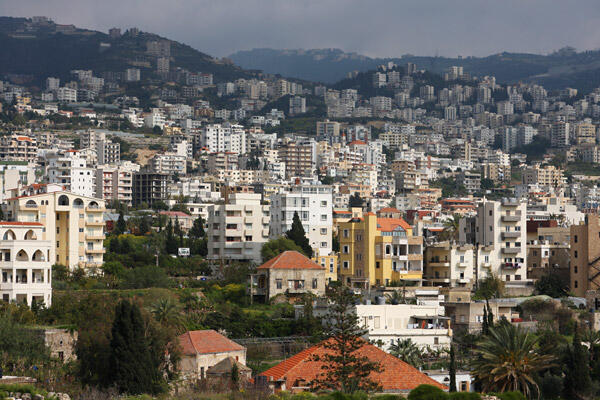Engineers and social workers warned Thursday that the majority of buildings in densely populated urban areas of the country do not meet basic public safety requirements, endangering the lives of millions of Lebanese. During a joint news conference the Building Safety Network and public safety advocacy group YASA called on officials to impose strict rules on the construction of factories and warehouses within residential buildings and residential areas in general. “It’s imperative that policies are put in place to limit damages and the number of fatalities in the event of fires, earthquakes and avalanches,” YASA officer Kamel Ibrahim told reporters. He called for the formation of a disaster-management body and the training of qualified personnel to counter natural and man-made disasters. Engineer Youssef Azzam, head of the Building Safety Network, highlighted the need for the government to consider building special industrial zones, where factories and warehouses would be located. “In the meantime, industrial venues within residential areas must be carefully surveyed and forced to abide by specific public safety requirements,” Azzam said. He added that the Building Safety Network and YASA sensed the emergency of the issue after two young firefighters, Mohammad al-Mawla and Adel Saadeh, suffocated to death when dousing a blaze at a print press located in the basement of the 12-story Al-Turk building on Mar Elias Street, Beirut, on April 28. “Why are factories and warehouses allowed inside residential buildings?” Azzam asked. “This goes against the basic rules of urban planning.” Earlier this week, Beirut Governor Ziad Chebib ordered the temporary suspension of two firefighters holding the rank of colonel, pending the result of investigations into the death of the two men who were killed fighting the fire in Mar Elias. Chebib also tasked the Beirut Fire Department with drafting a report on the losses it incurred extinguishing the fires that erupted at the print press in a bid to issue an order requiring the owners of the facility to pay compensation. Azzam explained that residential buildings in Lebanon do not meet the basic safety requirements, mainly when it comes to fires and infrastructure. “We have to stop and ask about the number of buildings equipped with fire escapes, especially in high and overcrowded buildings such as schools and hospitals and public administrations, all of which are packed with citizens every day,” he said. Azzam also described the state of infrastructure within the majority of buildings in urban areas as “deplorable.” He noted that water installations are too old, with the sewage system and potable water sometimes coming in contact, which leads to a wide range of diseases. Electricity and generator installations are often intertwined which increases the likelihood of fires erupting. “Eighty-five percent of Lebanese families live in structures built pre-1980 and which lack the basic safety requirements and are not earthquake resistant,” Azzam said, adding that in Beirut there are 24 impoverished clusters that lack proper infrastructure. Azzam called on the government to make disaster management a “national priority” by drafting policies and training personnel to curb the implications of natural catastrophes and man-made disasters. YASA’s Ibrahim said drills ought to be conducted periodically in schools, universities and hospitals so as to avoid the element of surprise and increase awareness and preparedness when disasters hit. “The government is asked to show a serious and powerful political will to include disaster management as part of its developmental policies and to engage advocacy groups in planning long-term policies that would limit the ramifications of natural disasters when they occur.” The Daily Star











